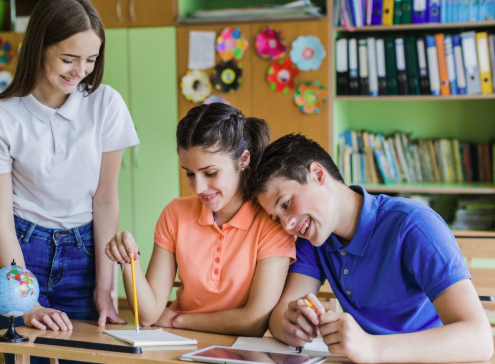Personalized learning isn’t just an educational trend—it’s a practical approach that prepares students for real-world success. By tailoring instruction to individual strengths, needs, and interests, personalized learning encourages deeper engagement, problem-solving, and self-direction. Its impact extends beyond the classroom, influencing how students approach challenges in everyday life, higher education, and future careers.
In the Classroom: Connecting Learning to Students’ Lives
Personalized learning makes classroom content more relevant and meaningful. For example:
- A student interested in environmental issues might complete a science project focused on local water quality.
- Another student who excels in creative writing may choose to explore historical events through storytelling.
- A learner who prefers hands-on activities might build a prototype to demonstrate understanding of physics concepts.
These personalized pathways allow students to apply academic skills in authentic, practical ways, boosting both motivation and retention.
At Home: Extending Learning Beyond School Walls
Personalized learning encourages students to continue exploring outside the classroom. Projects and self-paced tasks can be adapted for at-home environments, helping families support educational growth. Students might:
- Use online resources to study a personal interest.
- Create digital portfolios that track academic progress and personal development.
- Set personal goals that link schoolwork with hobbies or career interests.
In Extracurricular Activities: Blending Learning with Passion
Outside the core curriculum, students often experience the benefits of personalization in clubs, arts, and athletics. For instance:
- A robotics team member builds on math and engineering knowledge while developing teamwork and leadership skills.
- A student journalist sharpens research, writing, and interviewing abilities through a school newspaper.
- A theater performer gains confidence and communication skills through rehearsals and live performance.
These activities allow learners to personalize how they apply academic and interpersonal skills in real-world contexts.
In Career and College Readiness
Personalized learning helps students explore their interests and plan for the future. Through goal setting, portfolio building, and self-assessment, students can:
- Identify strengths aligned with potential career paths.
- Pursue internships, job shadowing, or service-learning projects.
- Develop soft skills such as time management, adaptability, and collaboration.
For Lifelong Learning
Perhaps most importantly, personalized learning nurtures habits of lifelong learning. When students learn how to reflect, adapt, and grow based on personal goals, they carry those skills into adulthood. Whether pursuing higher education, entering the workforce, or navigating daily life, they are equipped to take initiative and seek out opportunities for growth.
Conclusion
Personalized learning has real-life relevance that goes far beyond academic achievement. By making learning meaningful, flexible, and student-driven, this approach helps students apply knowledge in ways that prepare them for success in school and life. Through practical experiences, personalized learning builds confident, capable learners ready to thrive in the world around them.













